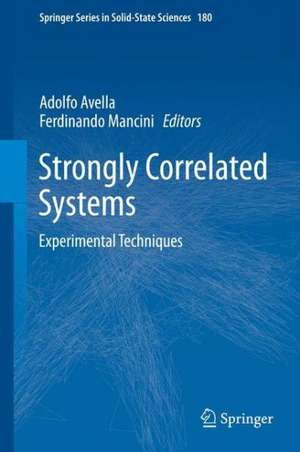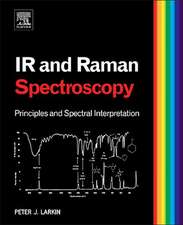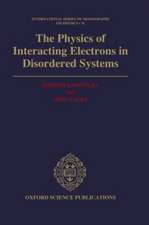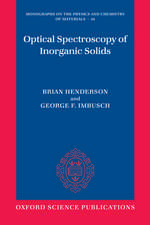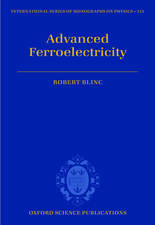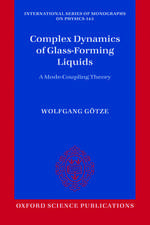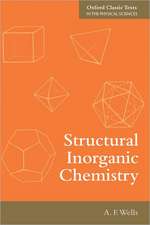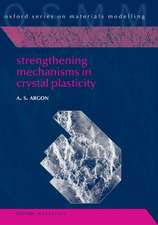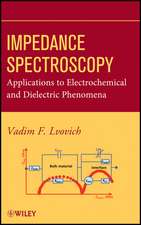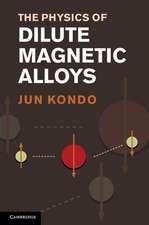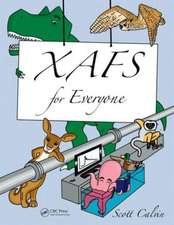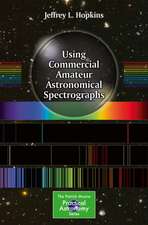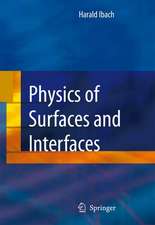Strongly Correlated Systems: Experimental Techniques: Springer Series in Solid-State Sciences, cartea 180
Editat de Adolfo Avella, Ferdinando Mancinien Limba Engleză Hardback – 13 oct 2014
| Toate formatele și edițiile | Preț | Express |
|---|---|---|
| Paperback (3) | 642.36 lei 6-8 săpt. | |
| Springer Berlin, Heidelberg – 22 sep 2016 | 642.36 lei 6-8 săpt. | |
| Springer Berlin, Heidelberg – 20 mai 2015 | 947.35 lei 6-8 săpt. | |
| Springer Berlin, Heidelberg – 28 ian 2014 | 1389.62 lei 6-8 săpt. | |
| Hardback (3) | 648.74 lei 6-8 săpt. | |
| Springer Berlin, Heidelberg – 13 oct 2014 | 648.74 lei 6-8 săpt. | |
| Springer Berlin, Heidelberg – 13 apr 2013 | 952.09 lei 6-8 săpt. | |
| Springer Berlin, Heidelberg – 2 noi 2011 | 1394.03 lei 6-8 săpt. |
Din seria Springer Series in Solid-State Sciences
- 18%
 Preț: 1225.94 lei
Preț: 1225.94 lei - 18%
 Preț: 1017.62 lei
Preț: 1017.62 lei - 15%
 Preț: 532.05 lei
Preț: 532.05 lei - 18%
 Preț: 944.51 lei
Preț: 944.51 lei -
 Preț: 541.47 lei
Preț: 541.47 lei - 18%
 Preț: 956.96 lei
Preț: 956.96 lei -
 Preț: 385.84 lei
Preț: 385.84 lei - 18%
 Preț: 1827.48 lei
Preț: 1827.48 lei - 15%
 Preț: 661.02 lei
Preț: 661.02 lei -
 Preț: 389.88 lei
Preț: 389.88 lei - 15%
 Preț: 639.59 lei
Preț: 639.59 lei - 15%
 Preț: 635.15 lei
Preț: 635.15 lei - 18%
 Preț: 896.21 lei
Preț: 896.21 lei - 15%
 Preț: 647.92 lei
Preț: 647.92 lei - 15%
 Preț: 651.34 lei
Preț: 651.34 lei - 18%
 Preț: 890.23 lei
Preț: 890.23 lei - 15%
 Preț: 640.55 lei
Preț: 640.55 lei - 15%
 Preț: 649.54 lei
Preț: 649.54 lei - 15%
 Preț: 645.60 lei
Preț: 645.60 lei - 15%
 Preț: 644.30 lei
Preț: 644.30 lei - 15%
 Preț: 653.79 lei
Preț: 653.79 lei - 18%
 Preț: 956.69 lei
Preț: 956.69 lei - 15%
 Preț: 637.59 lei
Preț: 637.59 lei - 23%
 Preț: 1043.42 lei
Preț: 1043.42 lei - 15%
 Preț: 639.08 lei
Preț: 639.08 lei - 15%
 Preț: 648.24 lei
Preț: 648.24 lei - 15%
 Preț: 637.46 lei
Preț: 637.46 lei - 15%
 Preț: 640.06 lei
Preț: 640.06 lei -
 Preț: 391.40 lei
Preț: 391.40 lei -
 Preț: 390.84 lei
Preț: 390.84 lei - 15%
 Preț: 638.57 lei
Preț: 638.57 lei - 18%
 Preț: 1006.06 lei
Preț: 1006.06 lei - 18%
 Preț: 730.79 lei
Preț: 730.79 lei - 15%
 Preț: 640.37 lei
Preț: 640.37 lei - 15%
 Preț: 643.65 lei
Preț: 643.65 lei - 18%
 Preț: 1231.01 lei
Preț: 1231.01 lei - 18%
 Preț: 950.21 lei
Preț: 950.21 lei - 15%
 Preț: 642.68 lei
Preț: 642.68 lei - 15%
 Preț: 640.55 lei
Preț: 640.55 lei - 18%
 Preț: 1229.10 lei
Preț: 1229.10 lei
Preț: 648.74 lei
Preț vechi: 763.22 lei
-15% Nou
Puncte Express: 973
Preț estimativ în valută:
124.15€ • 129.14$ • 102.49£
124.15€ • 129.14$ • 102.49£
Carte tipărită la comandă
Livrare economică 12-26 aprilie
Preluare comenzi: 021 569.72.76
Specificații
ISBN-13: 9783662441329
ISBN-10: 3662441322
Pagini: 340
Ilustrații: XXXIII, 302 p. 117 illus., 74 illus. in color.
Dimensiuni: 155 x 235 x 25 mm
Greutate: 0.65 kg
Ediția:2015
Editura: Springer Berlin, Heidelberg
Colecția Springer
Seria Springer Series in Solid-State Sciences
Locul publicării:Berlin, Heidelberg, Germany
ISBN-10: 3662441322
Pagini: 340
Ilustrații: XXXIII, 302 p. 117 illus., 74 illus. in color.
Dimensiuni: 155 x 235 x 25 mm
Greutate: 0.65 kg
Ediția:2015
Editura: Springer Berlin, Heidelberg
Colecția Springer
Seria Springer Series in Solid-State Sciences
Locul publicării:Berlin, Heidelberg, Germany
Public țintă
ResearchCuprins
ARPES.- NMR.- Neutrons.- Muons.- XANES.- STM.- EXAFS.- Optical Probes.- STS.- Van Alphen.- Thermal Probes.
Textul de pe ultima copertă
The continuous evolution and development of experimental techniques is at the basis of any fundamental achievement in modern physics. Strongly correlated systems (SCS), more than any other, need to be investigated through the greatest variety of experimental techniques in order to unveil and crosscheck the numerous and puzzling anomalous behaviors characterizing them. The study of SCS fostered the improvement of many old experimental techniques, but also the advent of many new ones just invented in order to analyze the complex behaviors of these systems. Many novel materials, with functional properties emerging from macroscopic quantum behaviors at the frontier of modern research in physics, chemistry and materials science, belong to this class of systems. The volume presents a representative collection of the modern experimental techniques specifically tailored for the analysis of strongly correlated systems. Any technique is presented in great detail by its own inventor or by one of the world-wide recognized main contributors. The exposition has a clear pedagogical cut and fully reports on the most relevant case study where the specific technique showed to be very successful in describing and enlightening the puzzling physics of a particular strongly correlated system. The book is intended for advanced graduate students and post-docs in the field as textbook and/or main reference, but also for any other researcher in the field who appreciates consulting a single, but comprehensive, source or wishes to get acquainted, in a as painless as possible way, with the working details of a specific technique.
Caracteristici
Collection of modern experimental methods for strongly correlated systems Didactical presentation of the essential experimental methods in condensed matter physics Gives the experimental basis for the study and characterization of novel materials with functional properties emerging from macroscopic quantum behaviour at the frontier of modern research in physics, chemistry and materials science Includes supplementary material: sn.pub/extras
Recenzii
From the reviews:
“This book covers a tremendous amount of material regarding the analysis of strongly correlated systems. It is concerned primarily with theoretical methods for describing transport properties in novel materials emerging from macroscopic quantum behaviors. It is intended for graduate students, postdocs and faculty who are interested in acquiring the broad background knowledge needed to become successful researchers in this area.” (Christian Brosseau, Optics & Photonics News, October, 2012)
“This book is a collection of several chapters presenting analytical methods (motivation, successes and limitations) to understand the physical properties of systems in which electrons are correlated. … It is aimed at advanced graduate students and/or young post-docs in physics active in the field of correlated systems, and is therefore quite specialized. The reader is supposed to have a strong familiarity with concepts of many-body physics … .” (Gabriel Stoltz, Mathematical Reviews, January, 2013)
“This book covers a tremendous amount of material regarding the analysis of strongly correlated systems. It is concerned primarily with theoretical methods for describing transport properties in novel materials emerging from macroscopic quantum behaviors. It is intended for graduate students, postdocs and faculty who are interested in acquiring the broad background knowledge needed to become successful researchers in this area.” (Christian Brosseau, Optics & Photonics News, October, 2012)
“This book is a collection of several chapters presenting analytical methods (motivation, successes and limitations) to understand the physical properties of systems in which electrons are correlated. … It is aimed at advanced graduate students and/or young post-docs in physics active in the field of correlated systems, and is therefore quite specialized. The reader is supposed to have a strong familiarity with concepts of many-body physics … .” (Gabriel Stoltz, Mathematical Reviews, January, 2013)
